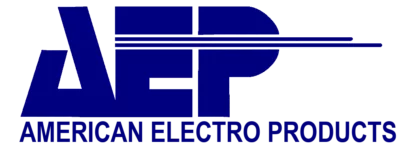
It’s not very often that you go looking for a new supplier for a particular service or product. Though certain situations do call for it. For instance, your current supplier may not provide exactly what you need. Or perhaps it’s time to do some comparative shopping – especially in the current environment. Maybe your supplier changed direction, or suddenly closed up shop. Whatever the reason, when searching for a new supplier, you’ll need to do your homework. Of course, you want to minimize any risk, and get what you need, dare I say, on time and on budget. This is certainly the case when selecting the right plating partner. Here are five key factors you should look for:
1) Does the shop hold industry certifications?
It’s important to make sure that the supplier has earned certifications or accreditations such as Nadcap, ISO 9001, AS9100 and RoHS. Often, these certs are required for mission critical parts used in aerospace, military and other applications. However, even if your application doesn’t require certain certifications, you should still look for them. Why? Working with an accredited plater typically means that they are committed to quality and consistency across the board. You can be confident that they will supply top notch results, regardless of the application. It’s in their DNA.

2) Are they experienced?
Sure. It might be tempting to work with the new kid on the block – especially when they are willing to drop their prices to get your business. But this is an industry where experience matters. It’s more than just how long the company has been in business. It’s also about how much experience the staff members have acquired. When working with a well versed, experienced team of professionals, the job will get done right the first time. This often saves you headaches now and down the road.
3) Do they specialize in your industry/application?
It’s important to work with a company that specializes in your industry. For instance, you wouldn’t want your precision electronics components being handled by the same company that dips costume jewelry. When selecting a plater that works in your industry, they will often prevent issues before they arise by leveraging their relevant experience. They speak your language and understand your requirements. This will save you time, frustration and help make sure that the job is done as it should be.
4) Do they offer several methods of plating?
This helps ensure that you are using the approach that is most cost effective for your needs. If a shop handles just one or two methods – you could get pushed into one when it might not be the best way to go. Square peg. Round hole. This could end up costing you more money, or lengthen turn time for your jobs. Work with a plater that provides several methods, is well versed in the differences and can best match your needs to their capabilities. We have found this to be the case as we offer many methods. These include loose piece – barrel, vibratory, spotted bed electrode, and selective. Reel to reel methods are offered too, including selective, spot, and depth (stamped, flat stock).
5) What support services are offered?
It’s wise to work with a plater that offers strong support services. Certain parts may present unique challenges, and having a good support team will help resolve these issues. These services may be handled by the plater or with the help of their trusted partners – typically ones that they have been working with for years. Support services to look for include In-house chemistry and quality labs (bath analysis, troubleshooting, and problem solving.) Ideally, they should have a relationship with an independent analytical laboratory as well.

